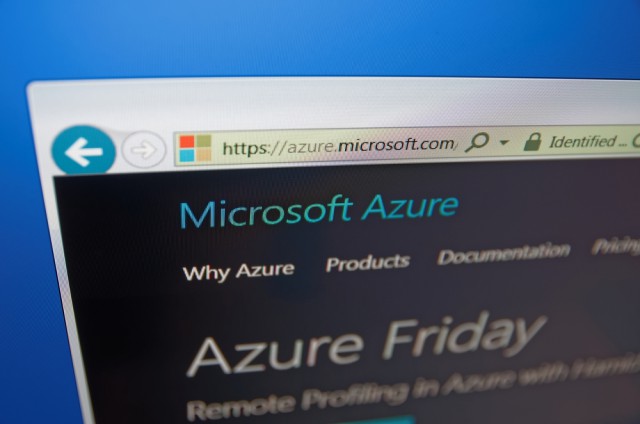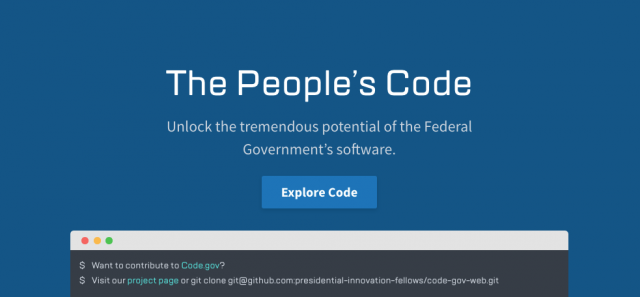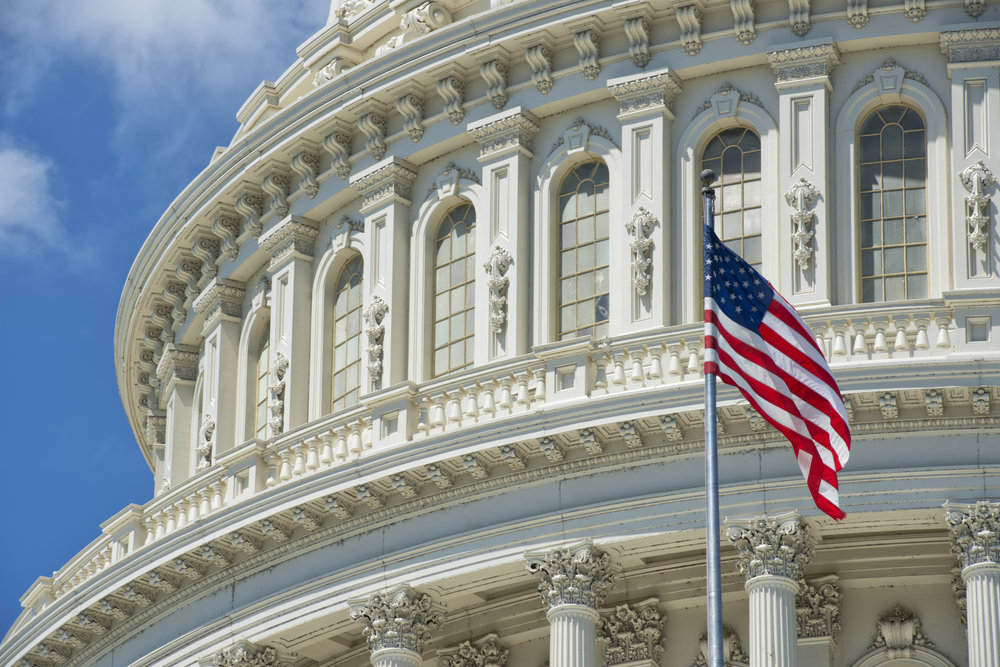
CIA's internal hacking tools rival those of the NSA
Debate and discourse around WikiLeaks’ announcement about a series of leaks from the CIA continue unabated. Codenamed "Vault 7," WikiLeaks claims this is the largest classified information leak to have come from the CIA to date. Added to that, only one percent of documents have been made public so far.
From the leaked documents it’s become clear that the CIA has created its own internal hacking capabilities to rival that of the NSA. It may be more tactical than strategic -- but with exploit sets including Android, IoS, Samsung TVs, Linux, Mac, zero day attacks and more, it could certainly give the NSA a run for its money.

US indicts Russian spies and hackers over 2014 Yahoo hack
The US Justice Department is charging two Russian spies and two hackers with orchestrating the attack against Yahoo in 2014 that saw 500 million accounts being compromised as part of an effort to collect intelligence.
The Justice Department says that Dmitry Dokuchaev and Igor Sushchin "and other known and unknown" FSB intelligence officers hired hackers Alexsey Beland and Karim Baratov to hack Yahoo accounts belonging to Russian journalists, officials, and employees of a "prominent" security company, as well as US officials and employees of tech companies.

Microsoft Azure Blueprint helps public organizations move faster to the cloud
Microsoft is looking to help public sector organizations cut on the time needed to get Microsoft Azure up and running. According to a new announcement it has made, it will now take organizations hours, instead of weeks, to get things rolling.
The company has revealed a blueprint that "reinforces its cloud security principles," and a UK official template for creating workloads in Azure and Service Bus Premium Messaging.

How would a 'robot tax' work?
On February 17, Bill Gates set the news agenda around the world by declaring that a so-called "robot tax" should be introduced in order to counteract job losses caused by automation. "Right now," he told online publication Quartz, "the human worker who does, say, $50,000 worth of work in a factory has that income taxed. If a robot comes in to do the same thing, you’d think that we’d tax the robot at a similar level."
There is no doubting that Gates' vision of job displacement is not of a distant dystopian future, but today's reality: in 2015 expenditure on robotics climbed to $46 billion, globally. A hotel in Japan, Nagasaki, is staffed entirely by robots. Even heritage British cake brand Mr Kipling has enlisted the help of 46 robots to pack its cakes.

No fracking way! Fukishima is worse than ever
Remember the Fukishima Daiichi nuclear accident following the 2011 earthquake and tsunami in Japan? I wrote about it at the time, here, here, here, here, and here, explaining that the accident was far worse than the public was being told and that it would take many decades -- if ever -- for the site to recover.
Well it’s six years later and, if anything, the Fukushima situation is even worse. Far from being over, the nuclear meltdown is continuing, the public health nightmare increasing. Why aren’t we reading about this everywhere? Trump is so much more interesting, I guess.

Trump's anti-H-1B order won't be what it seems
Immigration policy and trade protectionism play large roles in the new Administration of President Donald Trump. With the goal of Making America Great Again the new President wants to more tightly control the flow of goods and labor into the USA. Over the last week this has taken the form of an Executive Order limiting travel from seven specific Muslim countries. That order wasn’t well done, wasn’t well explained, has caused lots of angst here and abroad and is at this moment suspended pending litigation.
That order is supposedly about limiting terrorism. It will be shortly followed, we’re told, by further Presidential actions limiting abusive labor imports using, specifically, H-1B visas. This time, depending again on how the actual order is interpreted, it might be the right thing to do, because H-1B visa abuse is a very real thing that has hurt American workers.

No, America, you can't just demand customer data from anywhere in the world
The US government has lost its bid to overturn a previous ruling which stated it could not force companies to hand over customer data that is stored on servers outside the US.
The government's appeal stems from a ruling back in July when it lost a case in which it was trying to obtain customer data from Microsoft. It was seen as a win for privacy at the time, but the government thought the ruling could stand in the way of law enforcement. A vote by the second US Circuit Court of Appeals in Manhattan means that an appeal will not be heard.

DVSA's technology modernization journey
The DVSA (Driver and Vehicle Standards Agency), which focuses on improving road safety in Britain by setting and enforcing the standards for vehicles, driving and motorcycling, is transforming its technology landscape from primarily outsourced contracts to in-sourced agile delivered services using a combination of vendors and employees. As part of this, the agency has deployed a technology service desk.
Known as the Technical Support Service, it supports the DVSA’s new MOT software application currently in use by thousands of MOT testers around the UK delivering around 150,000 MOT tests daily. Here I will explain the modernization journey and why it was vital to support the agency’s strategic direction.

Watch Edward Snowden discuss Trump's victory, and privacy implications, in a live Q&A today
It’s fair to say, yesterday’s US election result sent shockwaves around the world. Donald Trump was seen as an outside bet by many people, but now he’s won the race for the White House, the big question, is what will his victory mean for the people, both at home and abroad?
Former NSA contractor turned whistleblower Edward Snowden has a lot to say on government matters, and today in a live Q&A he’ll be opining on how the US election results could affect your privacy, as well as any potential pardon for himself, and answering questions submitted via social media.

US launches website to share open-source software code
The US government has just launched its latest website, Code.gov with the aim of preventing the replication of code across government agencies in order to conserve valuable time and resources.
The site, which was launched on Thursday, already contains almost 50 open-source projects from a number of government agencies. Code.gov is the product of the Federal Source Code policy that was first announced in August by the White House.

British empire strikes back with new cyber security strategy backed by £1.9 billion investment
The UK government has today launched a new National Cyber Security Strategy, setting out decisive action to protect the nation's economy and the privacy of British citizens, and strike back against attackers, while encouraging industry to up its game to prevent damaging cyber-attacks.
The strategy sets out how the UK will use automated defenses to safeguard citizens and businesses against growing cyber threats, support the UK's growing cyber security industry, develop a world-class cyber workforce, and deter cyber-attacks from criminals and hostile actors.

UK government can save £2 billion through digital transformation
A new report has revealed that the UK government could save £2 billion by 2020 if it took the appropriate actions needed to shift its citizens to digital services and away from outdated technology and legacy contracts.
Independent charity the Institute for Government argued these points in its latest report titled Making a Success of Digital Government, in which it noted how the government has yet to see a significant return when it comes to the savings that could be generated by a transition to digital services.

Millennial behavior puts federal IT systems at risk
The security habits of the millennial generation could be putting federal IT systems at risk, if agencies don't adjust their cyber defenses in time.
This finding comes from a new study by cyber security company Forcepoint, which examines how members of the millennial generation use technology.

Microsoft introduces compliance guidance for Azure Government users
In an attempt to assuage concerns regarding how its cloud software and services designed for government agencies work, Microsoft has released new documentation for potential customers of Azure Government.
Microsoft Azure Government has already earned quite a few certifications acknowledging that it meets the strict requirements of the US federal government. However, for customers that believe this is not enough, the software giant has created its new Azure Blueprint program to help users use its cloud platform in a way that is compliant with government guidelines.

UK bans Apple Watch from cabinet meetings
In an attempt to block foreign hackers from compromising the devices of British politicians to access sensitive information, Apple Watches have been banned from use during official cabinet meetings.
The UK's prime minister Theresa May has informed elected ministers that just as mobile phones are not allowed, high-end smartwatches will no longer be permitted as they pose a security risk. An inside source informed The Telegraph that "The Russians are trying to hack everything".
